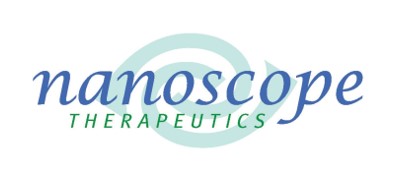- Home
- News Archive
More News
Want to Read Locked Articles?
Already Have an Account?

Register A Corporate Account
A corporate account gives you access to licensed reports and subscriptions, the latest news, a personalized dashboard, and weekly emails with news and data.
Nanoscope Reports Positive Results for RP Optogenetic Therapy, Plans to file BLA in H2-2024
Author: Jennie Crabbe

Nanoscope Therapeutics on March 26 reported positive topline results from its two-year Phase IIb clinical trial of MCO-010, an ambient-light-activatable optogenetic monotherapy to restore vision in patients with advanced retinitis pigmentosa (RP).
Nanoscope’s gene therapy uses an AAV2 vector to deliver multi-characteristic opsin (MCO) genes into bipolar retinal cells, where they express polychromatic opsins enabling vision in different color environments.
Nanoscope, of Dallas, Texas, said the therapy can be administered in an office setting and is applicable for RP regardless of the underlying gene mutation.
The trial was a randomized, double-blind, sham-controlled, multicenter US trial, in which patients received a single intravitreal injection of MCO-010. Treated patients were split between a high dose and a low dose of the gene therapy.
The trial met its primary endpoint, demonstrating a statistically significant improvement in best-corrected visual acuity (BCVA) at week 52 in both the high-dose and low-dose groups vs. sham. Improvements in visual function persisted or increased following week 52, demonstrating the durable effect of a single IVT injection, Nanoscope said.
The composite functional secondary endpoint of novel multi-luminance shape discrimination and y-mobility testing showed an 89 percent response rate in both the high-dose and low-dose treatment groups at week 52.
MCO-010 was generally well tolerated, with no adverse events related to intraocular inflammation—such as endophthalmitis, retinitis, retinal vasculitis, retinal occlusive vasculitis, or hypotony—reported in the treatment groups.
Based on the results, Nanoscope said it expected to submit a biologics license application (BLA) to the US FDA in the second half of 2024. The high-dose MCO-010 (1.2E11gc/eye) is planned to be the commercial dose.
MCO-010 has received orphan drug designations from the FDA for RP and Stargardt disease. Nanoscope is developing nonviral MCO-020 for geographic atrophy.


